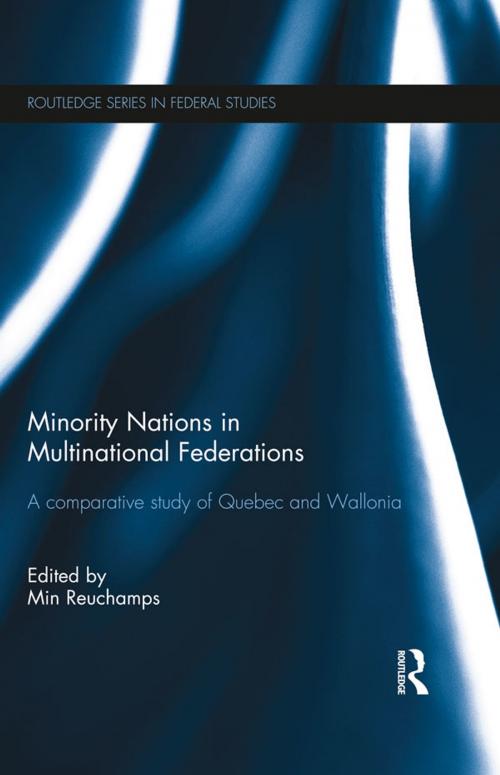Minority Nations in Multinational Federations
A comparative study of Quebec and Wallonia
Nonfiction, Social & Cultural Studies, Political Science| Author: | ISBN: | 9781317634713 | |
| Publisher: | Taylor and Francis | Publication: | December 17, 2014 |
| Imprint: | Routledge | Language: | English |
| Author: | |
| ISBN: | 9781317634713 |
| Publisher: | Taylor and Francis |
| Publication: | December 17, 2014 |
| Imprint: | Routledge |
| Language: | English |
Multinational federations rest on the coexistence of two or more nations within a single polity. Within these federations, minority nations play a significant role as their character differs from the other building blocks of the federation.
This edited volume offers a comprehensive comparison of two such minority nations - Quebec in Canada and Wallonia in Belgium - which exemplifies many dimensions, themes and issues highly resonant to the study of federalism and regionalism across the globe. Quebec and Wallonia have experienced several decades of federal dynamics where both regions have had to find their way as a minority nation in a multinational federation. For those studying federalism and regionalism their importance lies in a number of characteristics, but principally in the fact of these minority nations have transformed into mini-states with fully fledged legislative powers within their federation. This book seeks to study the specific dynamics within these small worlds and between them and the rest of the federation.
This text will be of key interest to students and scholars of federalism, nationalism and regionalism, comparative politics and policies, political ideas and social movements.
Multinational federations rest on the coexistence of two or more nations within a single polity. Within these federations, minority nations play a significant role as their character differs from the other building blocks of the federation.
This edited volume offers a comprehensive comparison of two such minority nations - Quebec in Canada and Wallonia in Belgium - which exemplifies many dimensions, themes and issues highly resonant to the study of federalism and regionalism across the globe. Quebec and Wallonia have experienced several decades of federal dynamics where both regions have had to find their way as a minority nation in a multinational federation. For those studying federalism and regionalism their importance lies in a number of characteristics, but principally in the fact of these minority nations have transformed into mini-states with fully fledged legislative powers within their federation. This book seeks to study the specific dynamics within these small worlds and between them and the rest of the federation.
This text will be of key interest to students and scholars of federalism, nationalism and regionalism, comparative politics and policies, political ideas and social movements.















